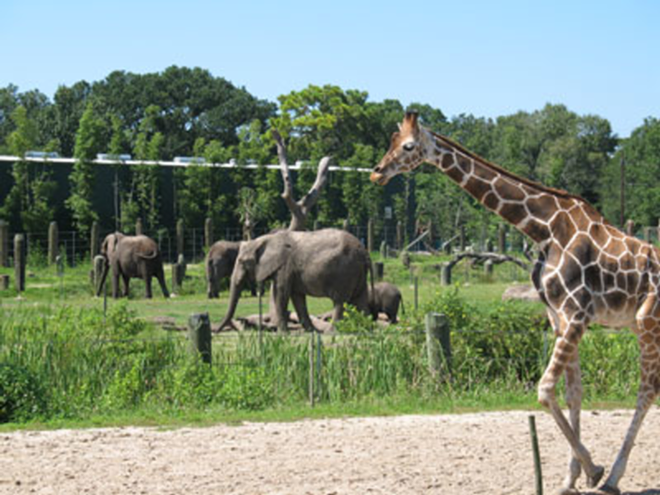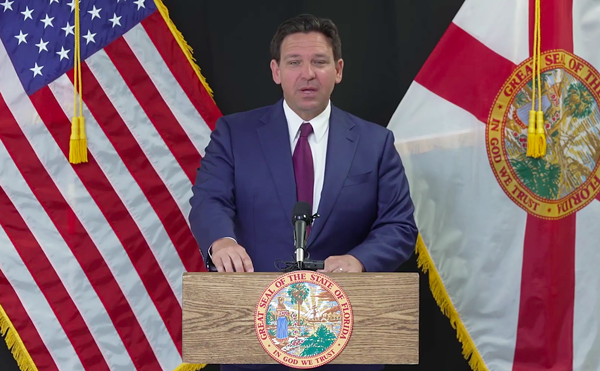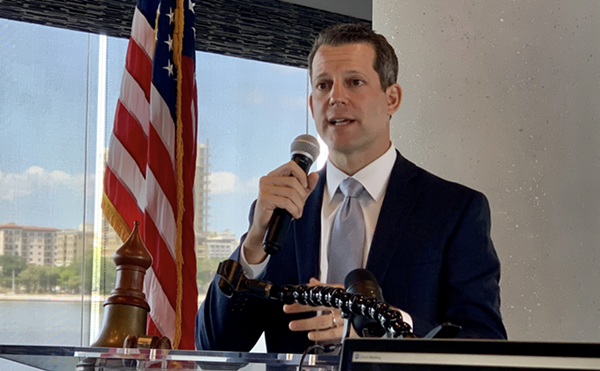In the inspection report filed by the USDA on Aug. 23 and obtained by Tampa Bay's 10 News, federal inspectors agreed:
"The current safety protocol for shifting big cats is inadequate to safely handle these animals in a manner that minimizes the potential for physical harm or trauma to the cats, keepers and public," wrote an inspector in the report. " ... The lack of proper training given to the new employee presented a safety hazard and threat to the zoo staff as well as the general public."
"We kept waiting for something," Jeff Kremer says about the tiger's escape in August. "We were afraid it was going to happen."
"That is the first time a tiger has escaped, but I can tell you ... I've worked shifts where baby elephants got out — twice," he adds, going down a list of animals that escaped temporarily from their habitats into other areas in the zoo: leopards, an orangutan, Colobus monkeys, an alligator and emus. "A significant animal gets out of an exhibit on a once-a-month basis. It's not an uncommon thing."
American Association of Zoo Keepers Executive Director Ed Hansen says that's a problem.
"Once a month is very frequent even for a large zoo," says Hansen, a former zookeeper at Reid Zoo in Tucson, Ariz. "If my facility was having a large or dangerous animal escape once a month, I would be doing some serious internal investigations and retraining my staff."
In a statement sent to Tampa Bay's 10 News responding to the USDA report, zoo spokesperson Nelson said the incident was "not a training issue, but rather a very unfortunate human error." In other media reports involving brief mentions of claims made by Czarnik, including two St. Petersburg Times articles and a Fox 13 interview, zoo officials dismissed him as a disgruntled employee. In Times writer Thomas French's nearly 8,000-word tribute to Herman and Enshalla, where just over 140 words were devoted to claims by Czarnik and Peterson, there was no response by the zoo.
In an e-mail to CL, Nelson refused to comment on any of the allegations made by former employees.
"The grievances of these employees have been well documented in the media in recent weeks, and we don't have anything to add to that," wrote Nelson. "We consider this a personnel matter, which we won't discuss today or another time."
Murphy, Salisbury, Murrow, Shannon and Noel did not return repeated calls for comment. Rottman, when reached, refused to comment. The zoo's attorney, Richard A. Harrison, denied Florida Public Records Act requests for several documents related to the zoo's operations. Following CL's attempts to contact zoo administrators directly, Nelson sent a letter to the paper's editor suggesting that such efforts bordered on "harassment," and that "it is [the zoo's] policy and a condition of our employment that employees are requested to not have any contact with the press on matters regarding the zoo or their employment here," and that all such inquiries must be referred to the public relations office.
The AZA, which produces an accreditation report every five years on its members, cannot release any information about inspections to the public due to a confidentiality agreement between its members. The only recent document on the zoo's practices to surface publicly has been the Aug. 23 USDA inspection report.
Former employees say current zookeepers cannot speak for fear of losing their jobs. "We all knew if you say something and have an opinion, you're gone," says Nicole Myers, a former zookeeper who resigned in April after two years in the aviary department. "You know that from the first month."
AAZK's Hansen does provide a balanced view on complaints lodged at zoos. Hansen says zoos face some of the same challenges as any other organization in which a worker-vs.-management sentiment can flourish. And in some cases, he says, that feeling is amplified at a zoo.
"Keepers, because they are so passionate about what they do, they lose sight sometimes that running the zoo is a business," he says. "It's an entertainment business and a conservation business. Sometimes keepers fail to see both sides."
City officials say they have a limited role in the zoo's practices, despite the fact that they occupy four seats on the nonprofit's board, and that the City of Tampa, which owns the land the zoo sits upon, provides the nonprofit thousands of dollars a year ($500,000 for FY 2006 alone). On Sept. 7, Tampa city attorney David Smith told the Tampa City Council that the city has little control over the zoo's operations, hiring or training. It is a position shared by some council members.

















